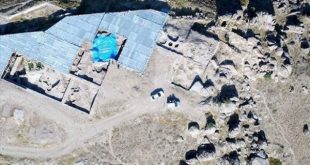 The origin of life on planet Earth is a very important subject for scientific research.
The origin of life on planet Earth is a very important subject for scientific research.
Regular findings and discoveries constantly shift the moment the first living organism farther and farther into the past. So this time canadian scientists discovered microscopic fossils again changed our view of the moment of the origin of life on Earth, pushing it back by as much as 300 000 000 years.
Previously it was thought that life on our planet arose a 3.4-3.5 billion years ago. But the microscopic fossils discovered in the Belt Novegicus, consisting of volcanic and sedimentary rocks and are located in 40 kilometres South-East of the city Inukjuak (québec), moved the time of the origin of life on Earth three hundred million years ago. Once the place where was discovered the fossil was a part of the bottom of an ancient ocean. Today it is the oldest known fossils contain the remains of biological life.
After careful analysis, the scientists concluded that the remains of microbes, discovered in the fossil record, have an age of 3.77 billion years. However, scientists admit the possibility that the age of some of the microbes can reach 4.28 billion years, and this moment is just 260 millions of years from the point of formation of our planet. The research results of canadian experts was published in the journal Nature.
© 2017, paradox. All rights reserved.




